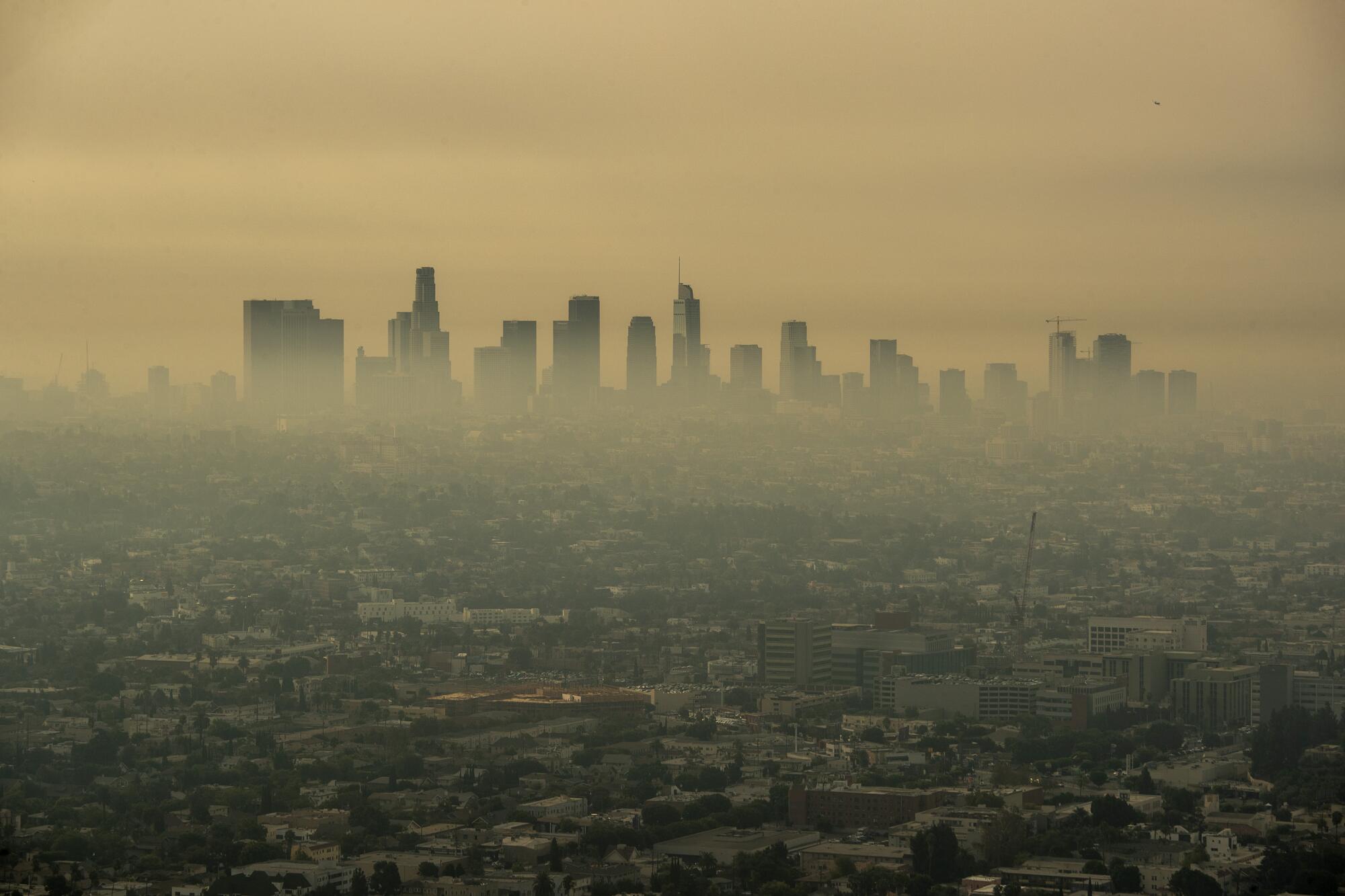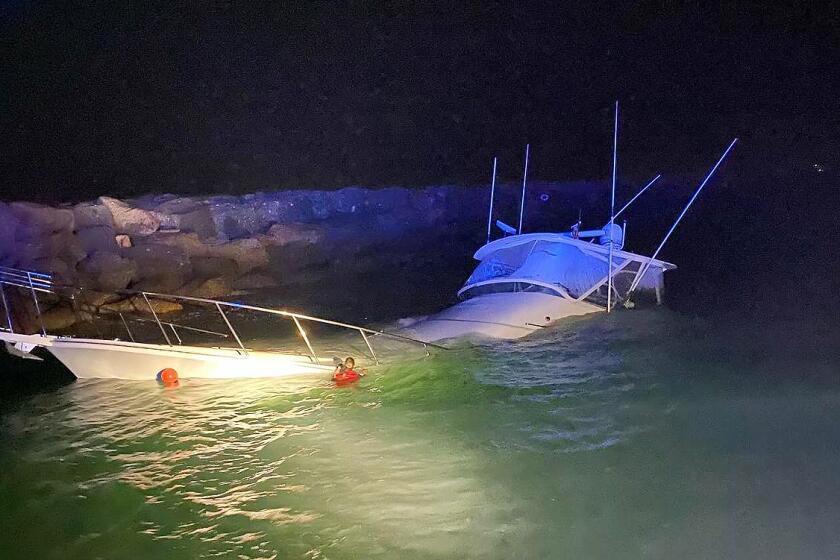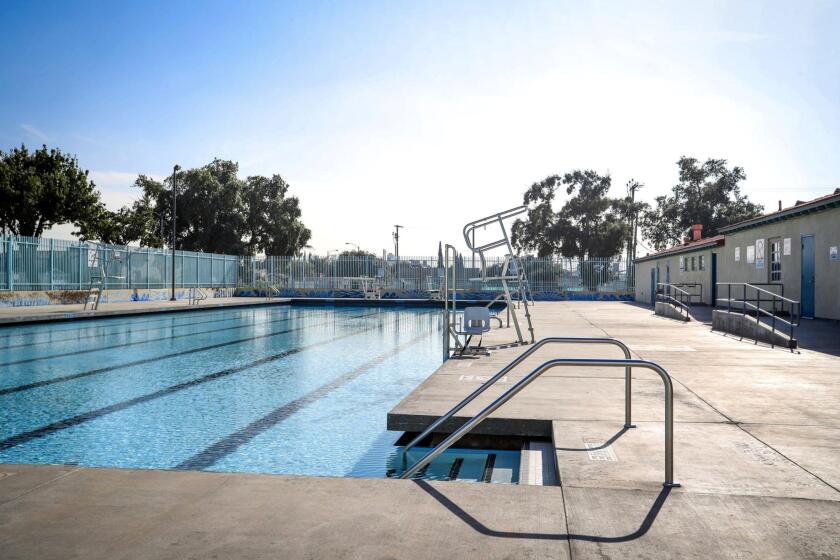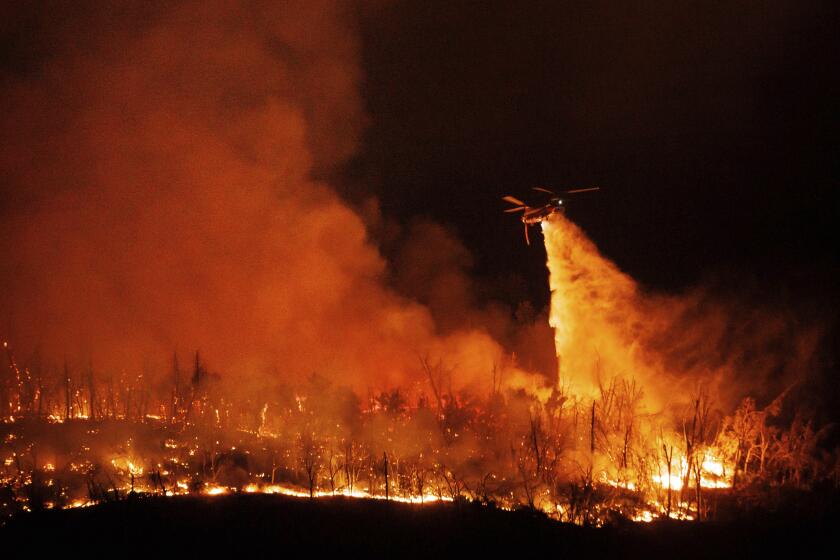
A contentious proposal to amend California’s Constitution to enshrine environmental rights for all citizens has been delayed for at least another year after it failed to gain traction ahead of a looming deadline.
ACA 16, also known as the green amendment, sought to add a line to the state Constitution’s Declaration of Rights affirming that all people “shall have a right to clean air and water and a healthy environment.”
The single sentence sounds straightforward enough, but by the start of this week, the proposal had not yet made it through the state Assembly or moved into the state Senate. Both houses would need to pass the proposal by June 27 in order to get it on voter ballots this fall.
Assemblymember Isaac G. Bryan (D-Los Angeles), who authored the bill, said he decided to hold it until next year so he could strengthen its language and improve its chances of success. That means it wouldn’t actually go into effect until 2026, if it passes.
“We simply don’t have enough time this election cycle to craft the comprehensive and inspired amendment language California deserves,” Bryan said in a post on the social media site X. “We will keep working and building for the climate justice our communities need.”
Aggressive and impactful reporting on climate change, the environment, health and science.
The amendment had gained some broad support, including backing from Assembly Speaker Robert Rivas (D-Hollister), according to Bryan, who is also chair of the Committee on Natural Resources.
The editorial board of the Los Angeles Times in April endorsed the proposal, noting that “in California, of all places, citizens should have the chance to weigh in on whether a healthy environment is a right on par with life, liberty, safety, happiness and privacy, which are all spelled out in the constitution.”
But it also drew opposition. The California Chamber of Commerce called it a “job killer” and said it had far-reaching negative consequences that would stunt housing development, infrastructure and clean energy projects, among other concerns.
The group said compliance costs could lead to economic impacts for businesses, communities and local governments. The group also voiced fear that the amendment could be used to halt any development projects that release air emissions, wastewater or other environmental discharge, including key transportation projects such as high-speed rail.
“While we are pleased the measure will not move forward this year, the proponents can be sure the proposal will be met with powerful opposition should it be brought back in the future,” said Denise Davis, a spokesperson for the Chamber of Commerce.
A proposal in the California Legislature would put a “green amendment” on the November ballot to add the rights to clean air, clean water and a healthy environment to the state constitution. The people should have their say.
Reached by phone, Bryan said he decided to hold the proposal for a year because he was “running out of time.”
“We’ve got a budget we’ve got to pass, we’ve got a lot on our plate, and the more conversations I have with legal scholars and front-line communities and other interested stakeholders, the more complex it seems to get,” he said. “And so I think we have a much deeper understanding than we did when we started this process, and I think we have some options about how we would like to bring this back next time. Ultimately, I just wish I had started this process a year ago.”
Bryan said he’s been studying similar amendments from other states that have already added such clauses to their constitutions to learn from their strengths and weaknesses. It is important to “strike the kind of appropriate balance of power for California knowing that it will have a massive ripple effect,” he said.
Indeed, California would not be the first state to affirm these environmental rights. Pennsylvania and Montana enshrined similar language in their constitutions in 1971 and 1972, respectively. New York added the right to a “healthful environment” to its document in 2021 with overwhelming support from voters.
More than a dozen other states — including Arizona, Texas, Hawaii and Florida — are currently considering their own green amendments, with additional proposals anticipated in at least five other states, according to a recent report from the Sierra Club.
California Environmental Voters, an advocacy group that backed California’s proposal, said it understood the decision to hold the amendment given the time constraints. But the amendment’s failure to launch also reflects the need for more action and leadership, said Mike Young, the group’s senior political and organizing director.
“We’re in a situation where we need leadership on these issues, we need to continue to step up, we need to actually push harder, because we see that we’re falling behind,” he said. “It’s a really critical time. This is why we really want not just leadership from members like Assemblyman Bryan, but we need big leadership from the Legislature to really prioritize these things and make them happen. Because without that, it can just get really lost.”
The ruling adds to a small number of legal decisions around the world that have established a government duty to protect citizens from climate change.
Last month, the group hosted a virtual town hall meeting for young climate activists who were eager to see the proposal passed. Nearly 60 attendees gathered in the online Zoom meeting, during which Bryan said he also saw the amendment as a means to hold powerful entities accountable.
Residents in Pennsylvania, for instance, have already used their green amendment as a tool for litigation, including a 2017 lawsuit against the Trump administration for delays in protecting residents’ health against ozone and smog.
Last year, a group of young environmental activists in Montana won a landmark lawsuit in which a judge ruled that state agencies were violating their constitutional right to a clean and healthful environment by allowing fossil fuel development.
“This is pragmatic — it’s what the people deserve,” Bryan told the group. “We’re 40 years behind other states.”
What’s more, California has already taken other actions to insulate itself against shifting federal interests, he said. Those efforts include 2017 legislation declaring California a “sanctuary state” in a rebuke of Trump-era immigration policies.
In 2022, California also codified abortion and other reproductive rights in its state Constitution after the U.S. Supreme Court’s decision to overturn Roe vs. Wade.
Bryan said on the phone that his proposal to enshrine similar protections for clean air and water is not intended to reflect pessimism about where federal environmental policy is headed, but rather a posture of “better safe than sorry.” Postponing the amendment for another year won’t lessen its impact, he said.
“If the federal government were to swing in a non-environmentally friendly or sustainable way, 2026 is still in the midst of that,” he said. “If that does come to happen, then I think this carries just as much weight, if not more weight, to do it then.”
Toward a more sustainable California
Get Boiling Point, our newsletter exploring climate change, energy and the environment, and become part of the conversation — and the solution.
You may occasionally receive promotional content from the Los Angeles Times.










